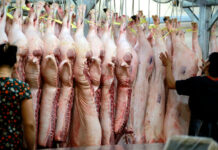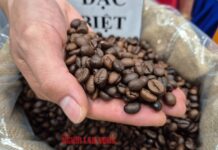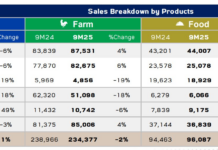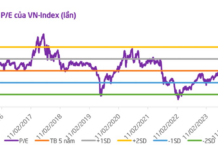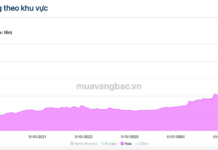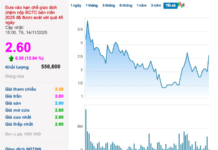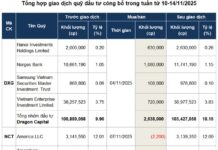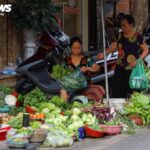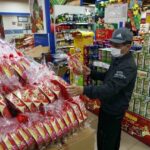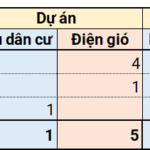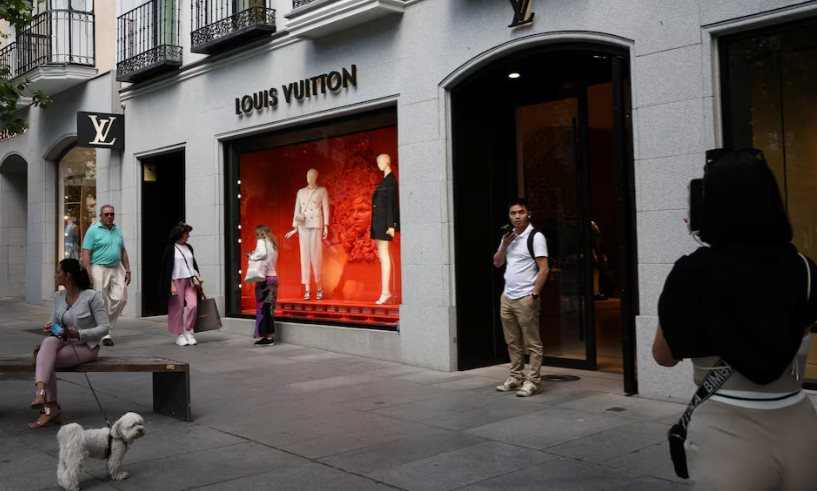Vegetable Prices Skyrocket
On September 29th, at numerous local markets in Ho Chi Minh City, vegetable prices surged unexpectedly. Ms. Nguyen Thi Minh, a resident of Xuan Hoa Ward, reported that lettuce, priced at 35,000 VND/kg last week, has now jumped to nearly 45,000 VND/kg. Tomatoes and cucumbers, previously at 20,000 VND/kg, have doubled in price.
“With such a sharp increase, I’m buying smaller quantities, just enough for daily meals, rather than stocking up as I used to,” said Ms. Minh.
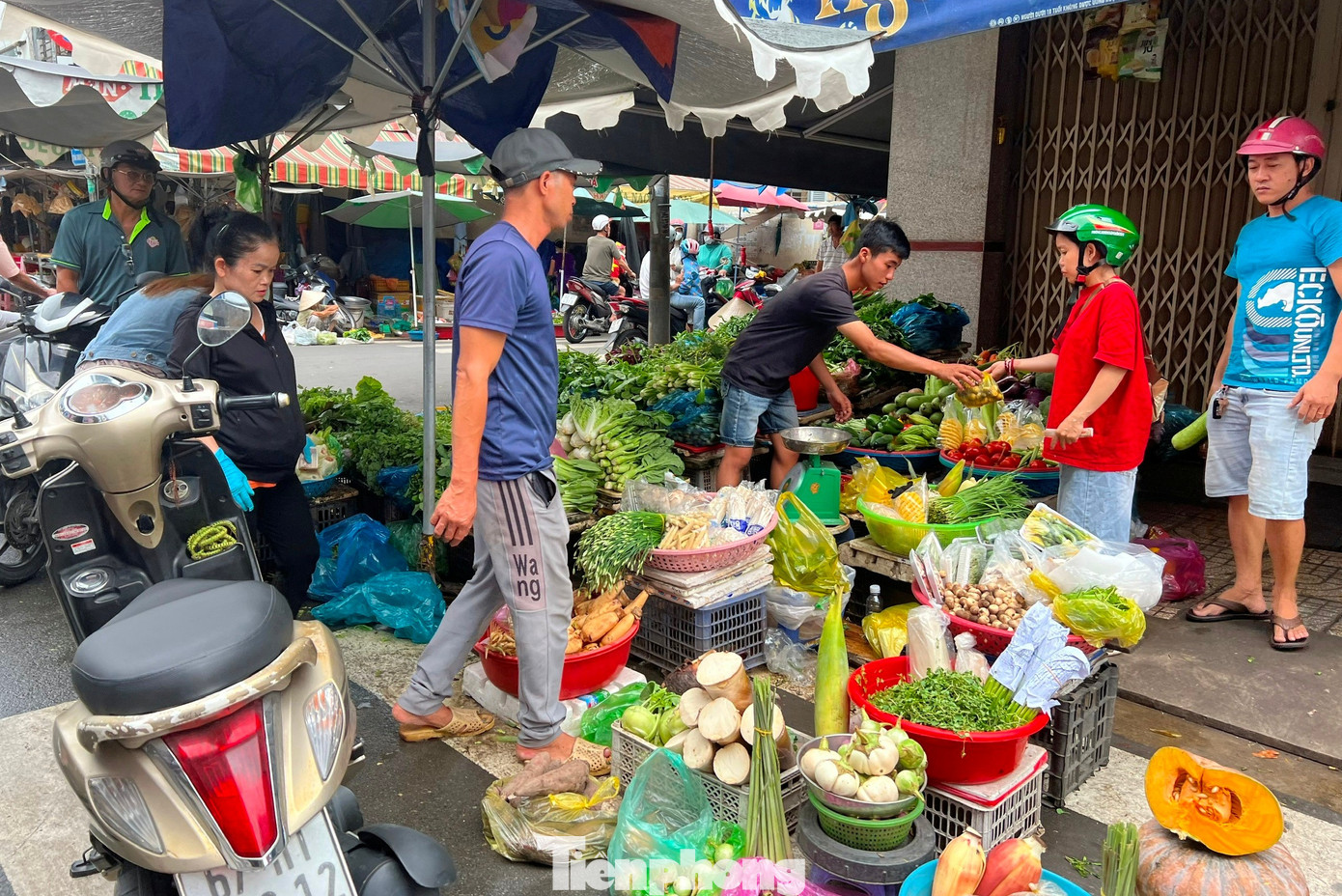
Many vegetables have increased in price due to continuous heavy rains and storms in recent days.
Vendors confirmed that the vegetable supply has been severely affected by the storms. At Go Vap Market, Ms. Nhung, a vegetable vendor, mentioned that despite high prices, lettuce suffers significant spoilage, with many batches waterlogged and unsuitable for long-term storage.
“Almost all vegetables have increased in price. I’m worried that after the storms, prices might rise even higher,” Ms. Nhung expressed.
At Hoa Binh Market, Ms. Tam, another vegetable vendor, is cautiously restocking due to high prices and weak purchasing power. Vegetables are prone to spoilage and waterlogging in heavy rain, and supplies from northern provinces are scarce due to flooding.
Not only vegetables, but some fruits have also seen slight price increases of 3,000–5,000 VND/kg. For example, Da Lat persimmons are around 55,000 VND/kg, sweet pomelos 55,000 VND/kg, and grapefruits 35,000 VND/kg.
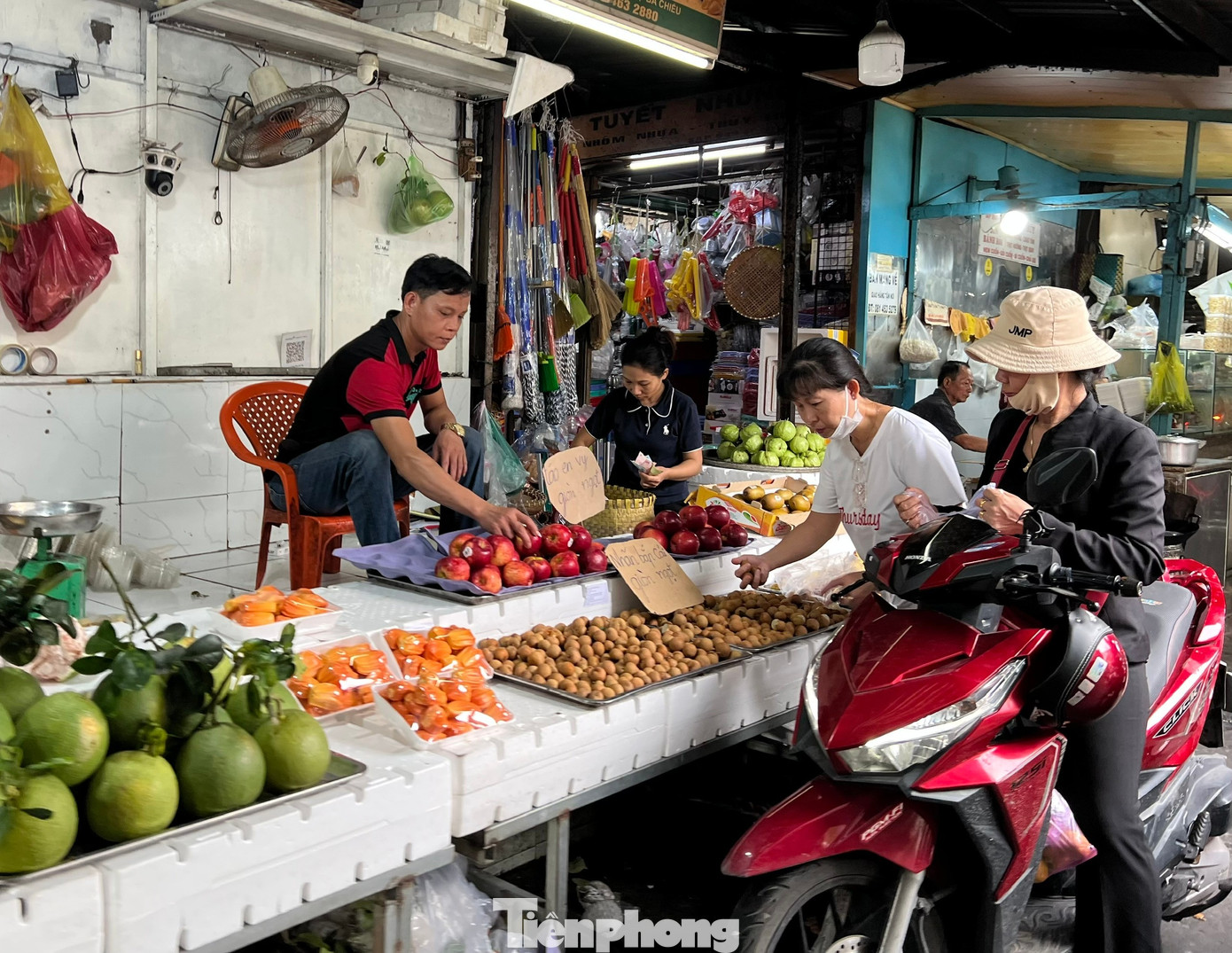
Vendors are hesitant to stock up due to fears of spoilage and slow sales.
In contrast to vegetables, pork prices are trending downward. At Binh Dien Wholesale Market, pork prices range from 65,000 to 68,000 VND/kg. At local markets, pork belly is 163,000 VND/kg, pork loin 158,000 VND/kg, and boneless pork hock 128,000 VND/kg. Retail pork prices have dropped by 4,000–7,000 VND/kg compared to a few days ago, primarily due to falling wholesale prices and low demand.
Meanwhile, market management authorities are intensifying inspections to prevent hoarding and unreasonable price hikes.
Retailers Roll Out Response Strategies
In response to fluctuating vegetable prices caused by storms, supermarket chains have swiftly implemented measures to stabilize the market. Bach Hoa Xanh has launched “buy one, get one free” promotions for water spinach, green mustard, and amaranth, easing the financial burden on consumers.
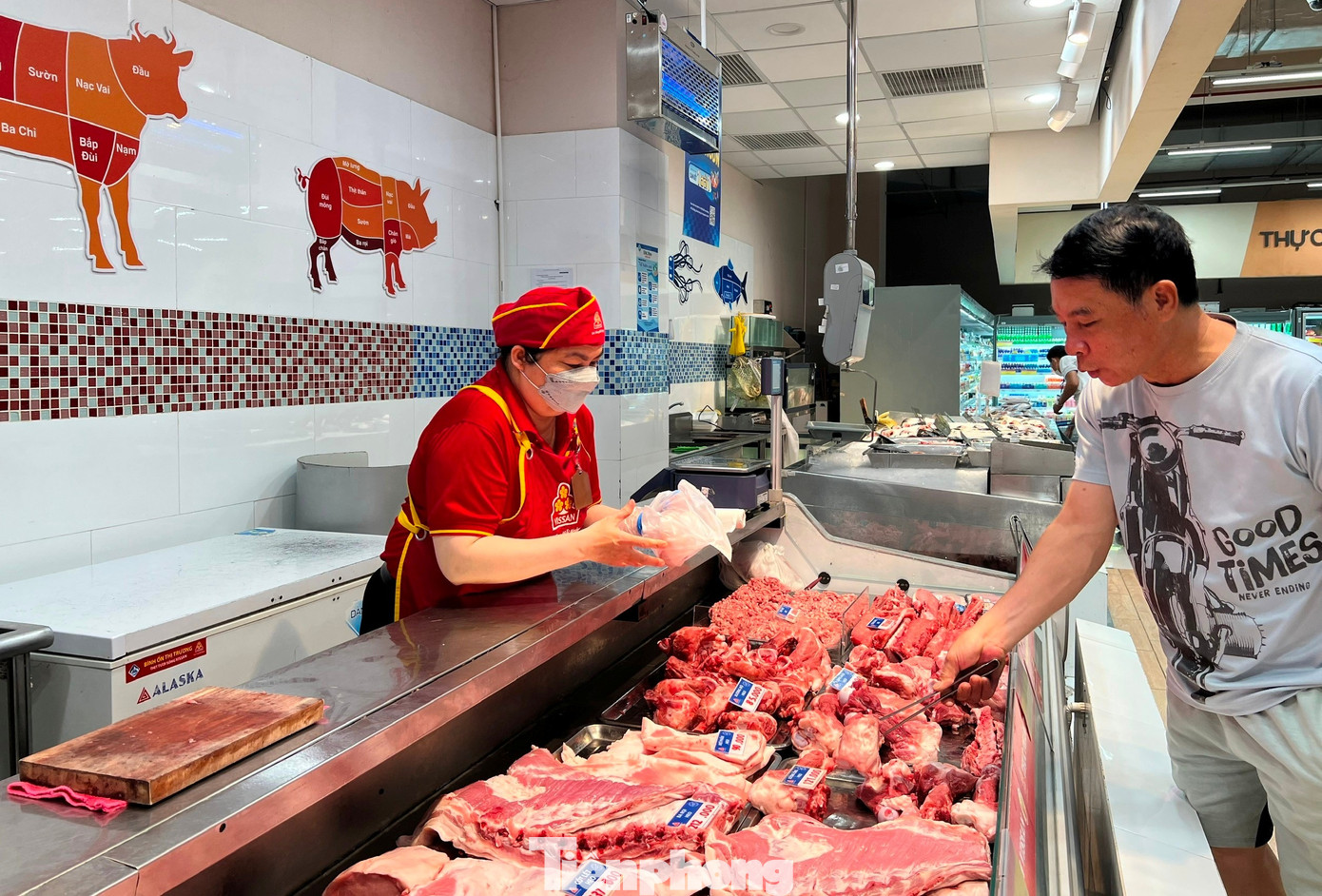
Supermarkets are implementing plans to stabilize the market and ensure no supply shortages.
Saigon Co.op has doubled or tripled essential goods like instant noodles, ready-to-eat meals, and eggs at supermarkets in storm-affected areas. The chain has also dispatched supply convoys from the south to support affected localities. Co.opmart and Co.op Food outlets in the north have increased essential goods reserves by 2–3 times, focusing on rice, eggs, meat, vegetables, drinking water, and emergency supplies.
Central Retail Vietnam assures that GO! and Tops Market stores will maintain sufficient essential supplies and stable prices, preventing shortages or price spikes. The chain is also offering promotions to boost purchasing power.
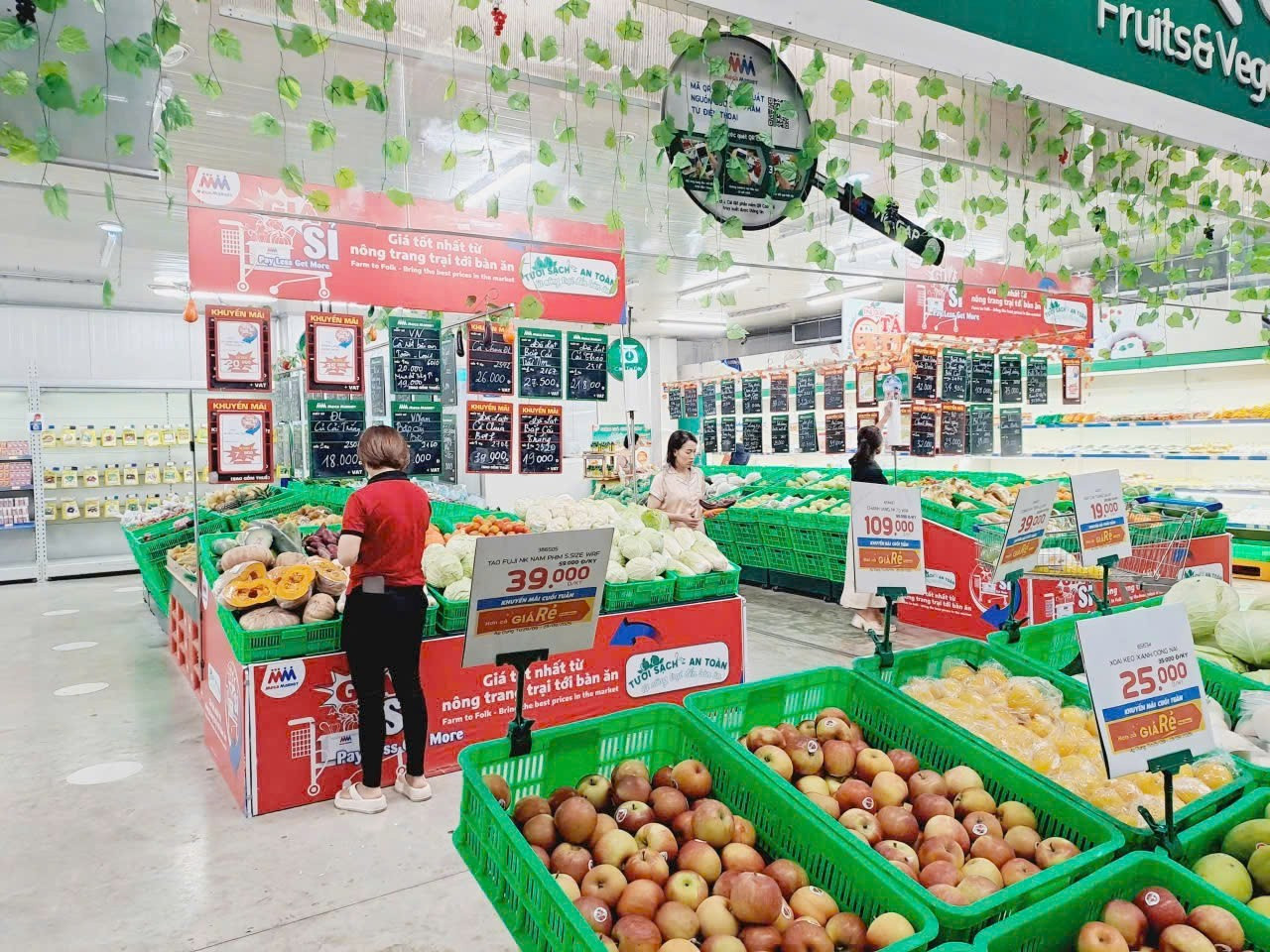
Goods at MM Mega Market are fully stocked.
MM Mega Market Vietnam has prepared for Typhoon No. 10. At MM Mega Market Vinh, Thanh Hoa Depot, Dong Hoi Depot, and other outlets, supplies of dry food, beverages, vegetables, meat, and fish have been prioritized. Stores have enhanced safety measures, reinforced infrastructure, inspected electrical systems, and prevented flooding. Staff have been trained in emergency evacuation procedures to ensure the safety of both customers and goods.
“Essential goods are prioritized to ensure timely supply. We’ve implemented safety measures such as reinforcing infrastructure, inspecting electrical systems, preventing flooding, and relocating goods to higher areas to avoid storm damage,” said a representative of MM Mega Market Vietnam.
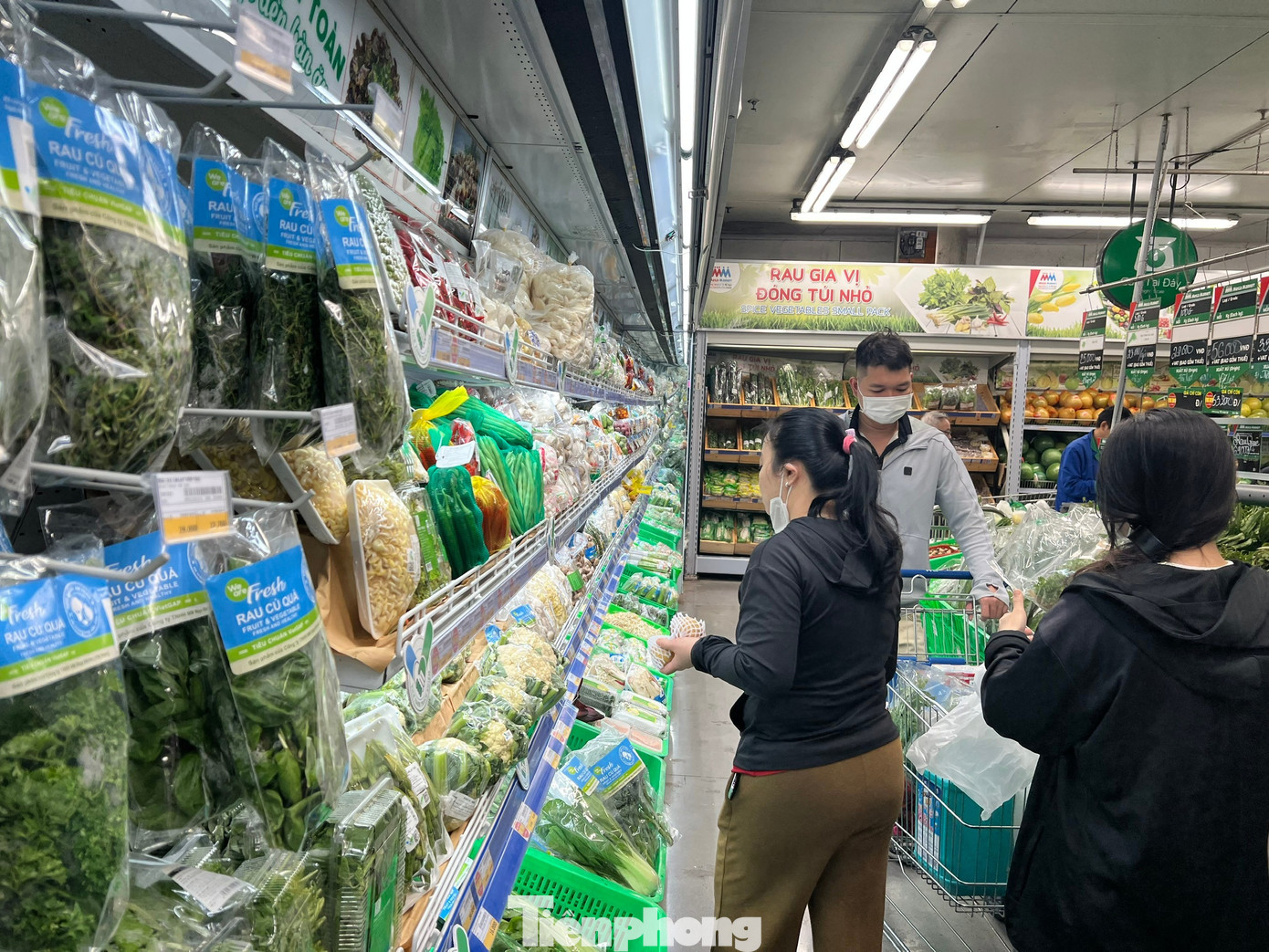
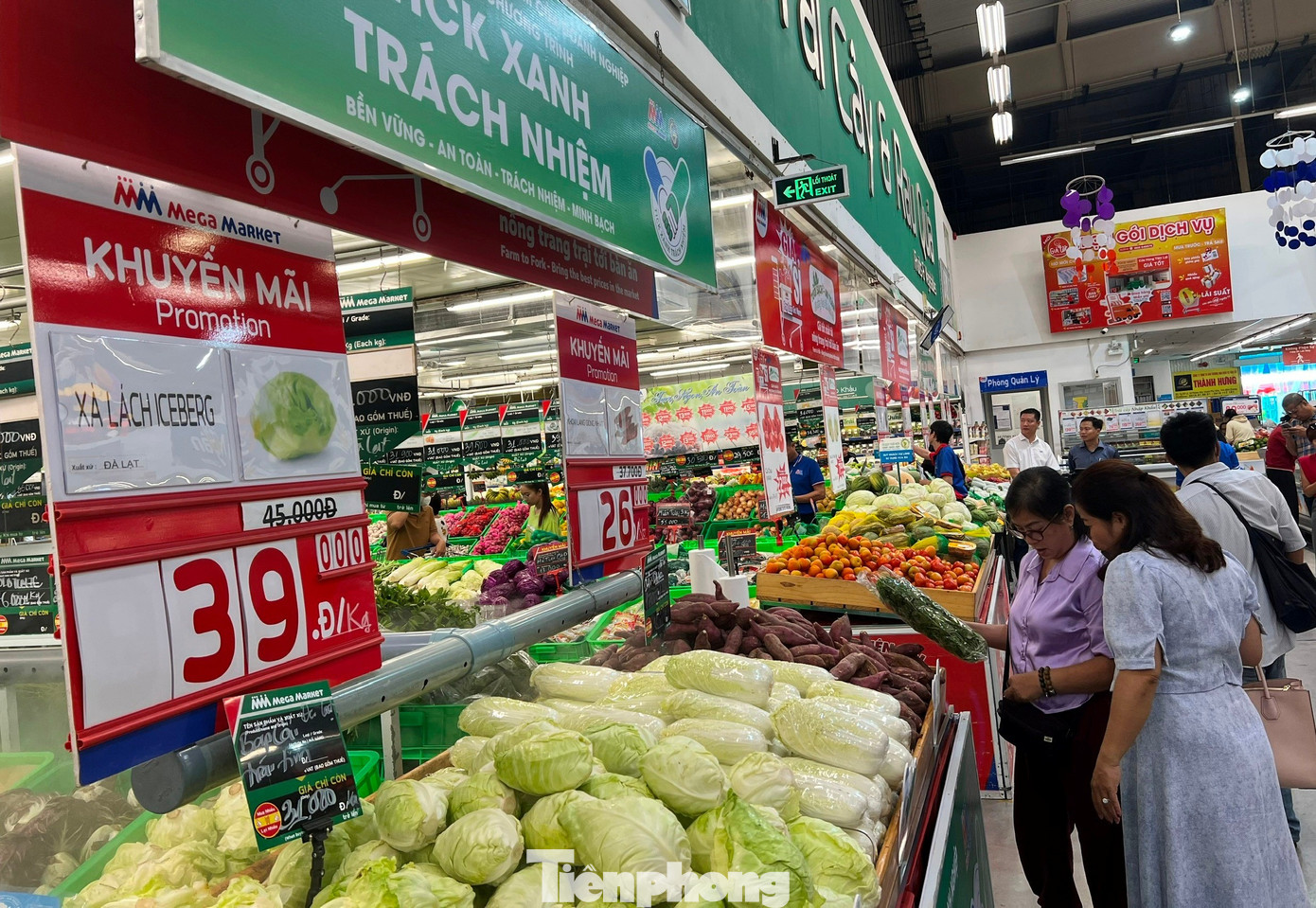
Retailers are implementing a “two-tier strategy”: preparing goods in storm-affected provinces and maintaining reserve warehouses in neighboring localities for timely support.
Supermarkets emphasize that to stabilize the market, retailers are not only increasing reserves but also adopting a “two-tier strategy”: preparing goods in storm-affected provinces and maintaining reserve warehouses in neighboring localities for timely support. This ensures supply continuity even if storms cause localized disruptions.
Some chains are also offering significant discounts on fresh produce and essentials to support consumers during these challenging times.
Multi-Star Solutions: Real Estate Prices Remain Unyielding
Over the past two years, countless discussions have revolved around solutions for the real estate market, pinpointing various causes and proposing numerous measures. Yet, despite these efforts, housing prices remain stubbornly high, leaving many struggling to afford them. What explains this persistent gap between extensive dialogue and tangible results?
The Magic of Saigon’s Retail Renaissance: Unlocking a 30-40% Sales Surge
As we approach the Lunar New Year of 2025, the Year of the Snake, businesses are gearing up with an impressive capital of over 22 trillion VND. Notably, more than 8 trillion VND of this is allocated for essential food and beverage items, ensuring a well-stocked and prosperous holiday season.

